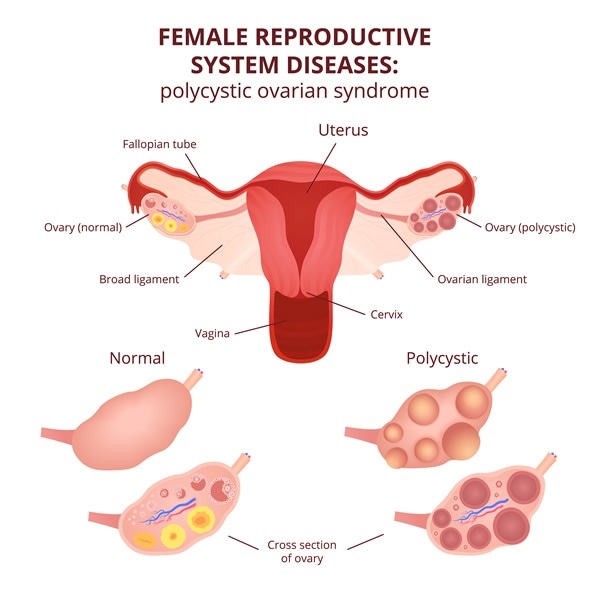Accutane for sale no prescription
The exact cause of polycystic ovary syndrome (PCOS) is not known. However, an imbalance in the levels of hormones in the body has been suggested as a potential cause of the condition.
There are several possible mechanisms that have been proposed as causes of PCOS, including insulin resistance, hormonal imbalance, genetic inheritance, and inflammation. Each of these is discussed in more detail below.

Insulin Resistance
The pancreas is responsible for the production of the insulin hormone, which is involved in the regulation of glucose in the blood alongside glycogen. It plays a role to reduce the levels of glucose in the blood by encouraging the uptake of glucose into cells to be utilized as energy.
Resistance to insulin refers to when the body’s tissues become resistant to the effects of insulin, leading to a rise in the concentration of glucose in the bloodstream. The pancreas begins to produce more insulin to control the glucose to compensate, but it continues to have a reduced effect.
The high levels of insulin can then cause the ovaries to produce excess testosterone, which interferes with the normal process of follicle development and ovulation. As a result, ovulation may not occur regularly and the woman may develop PCOS and have difficulty becoming pregnant.
Although being overweight or obese cannot cause PCOS in its own right, excess fat is thought to contribute to worsening of symptoms in women with the syndrome. This is likely linked to the effect of excess fat on insulin resistance, leading to PCOS.
Hormonal Imbalance
An imbalance of hormones in the body is another possible cause of PCOS. Many women with the condition have abnormal levels of hormones, which may be responsible for causing PCOS. These hormonal imbalances include:
- Increased testosterone levels: Testosterone is usually produced in small quantities in women and is present at a higher concentration in women with PCOS.
- Increased luteinizing hormone (LH) levels: LH is needed to stimulate ovulation but may have an adverse effect on the ovaries at high concentrations.
- Increased prolactin levels: Prolactin stimulates the breast glands to produce milk, but raised levels are only evident in some women with PCOS.
- Decreased sex hormone-binding globulin (SHBG) levels: SHBG is a protein that usually binds to testosterone in blood to reduce the effect of testosterone.
However, it is not clear if these hormonal changes are involved in the pathogenesis of PCOS to cause the condition or if they are a result of the condition.
Genetic Inheritance
Women with a family history of PCOS and other similar hormonal conditions are more likely to be affected by PCOS, which suggests that there may be a genetic link to the condition.
To date, there have not been any specific genes identified to be associated with causing the condition, although this is an area of current research which investigates the possibility of a genetic cause.
Inflammation
Women with PCOS appear to have low-grade inflammation, which stimulates polycystic ovaries to produce androgen hormones. Inflammation is a normal response of the body to fight an infection and involves the production of white blood cells by the immune system. However, the role of inflammation in causing PCOS is not completely clear.
References
- http://www.nhs.uk/Conditions/Polycystic-ovarian-syndrome/Pages/Causes.aspx
- http://www.mayoclinic.org/diseases-conditions/pcos/basics/causes/con-20028841
- https://medlineplus.gov/ency/article/000369.htm
- http://patient.info/health/polycystic-ovary-syndrome-leaflet
- http://emedicine.medscape.com/article/256806-overview#a4
Further Reading
- All Polycystic Ovary Syndrome Content
- Polycystic Ovary Syndrome (PCOS) – Irregular Function of Ovaries
- Polycystic Ovary Syndrome Symptoms
- Polycystic Ovary Syndrome Diagnosis
- Polycystic Ovary Syndrome Treatment
Last Updated: Feb 27, 2019

Written by
Yolanda Smith
Yolanda graduated with a Bachelor of Pharmacy at the University of South Australia and has experience working in both Australia and Italy. She is passionate about how medicine, diet and lifestyle affect our health and enjoys helping people understand this. In her spare time she loves to explore the world and learn about new cultures and languages.
Source: Read Full Article
